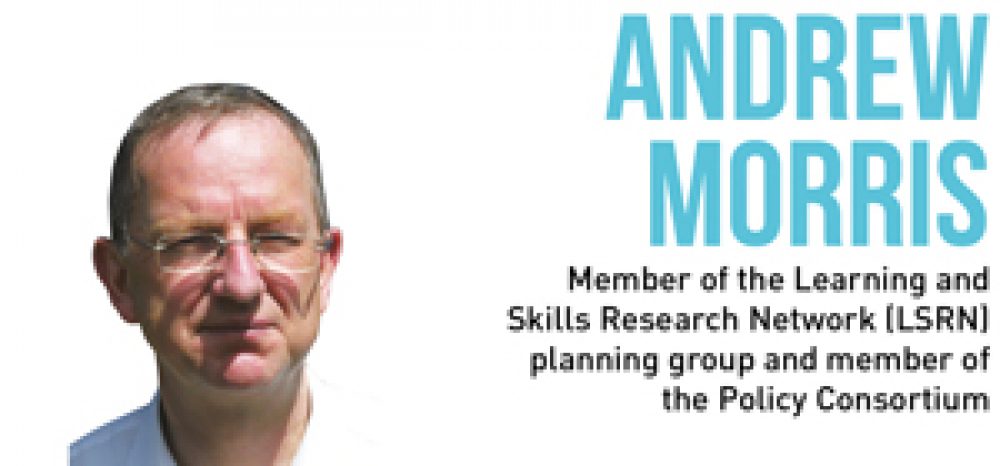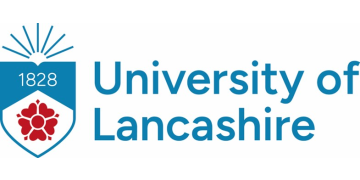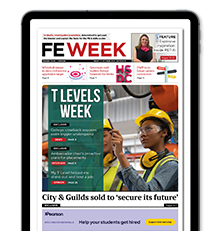Andrew Morris looks at how problems affecting FE practitioners are being a tackled with an appreciation of the need for evidence, and how this evidence might be used to bid for research funding in tough economic times.
South Staffordshire College and Thurrock Adult Community College are anything to go by, a significant change in the use of evidence is taking place.
Teachers and managers from these and many other organisations discussed the practicalities of using research at the latest workshop of the Learning & Skills Research Network (LSRN).
The What Works Centre for Local Economic Growth, the College of Policing and the Alliance for Useful Evidence — all established in the last five years — bear witness to this recent upsurge.
In education, the remarkable success of the Education Endowment Foundation’s ‘Toolkit’ of evidence-based practices in teaching and learning has been used by more than half of secondary schools in its three years of existence.
Numerous organisations are now helping get the right kind of evidence in the right format to those who need it most — practitioners and decision-makers at
the frontline.
What this means in practical terms for the learning and skills sector is illustrated by the work of Michael Smith and Paul Roberts, team leaders at Barking and Dagenham College.
Having identified an important college-wide issue — initial assessment procedures that assigned too many students to the wrong level — they set about collating information, looking at existing research and proposing a new approach to the senior team.
With their support a pilot scheme was developed and carefully tested. As Michael said: “We were then able to move forward with knowledge and understanding from
the testing.”
Innovation requires a degree of risk-taking and leaders have to weigh this up in allocating budgets
Chris Davies, director of curriculum at South Staffordshire College, reinforces the importance of first identifying a serious college-wide problem and then taking an evidence-based approach.
A study he had undertaken revealed that 40 per cent of staff non-teaching time was spent on activity not related to teaching. On the basis of this changes were made, such as aligning central administrative staff with curriculum areas on each campus.
From the many examples of evidence-use brought out at the workshop, some idea of the practicalities began to emerge. “Stop waiting for government initiatives” was one piece of sound advice; “stop counting beans” was another, equally pithy.
The key message, repeated in case after case, was to start by identifying a key problem that seriously affects student learning and then arm yourself with knowledge and evidence.
To do this, requires space and time for reflection and experimentation. Finding these scarce resources was a recurring theme.
The solution demonstrated in many successful initiatives is to make use of existing structures such as professional development days and to focus on problems that will help the organisation move forward.
No doubt the new grants announced at the workshop from the Further Education Trust for Leadership will help, providing financial and professional support for a number of new practice-based studies.
Encouragement from leadership teams proves an essential ingredient in the view of most project leaders. But for budget-holders it is not easy to decide where to invest.
Research does not generally provide simple answers guaranteed to improve outcomes — by definition it addresses unknowns.
Innovation requires a degree of risk-taking and leaders have to weigh this up in allocating budgets. So what can project leaders do to persuade a reluctant leadership team? Be pragmatic seemed to be the advice from participants — if the leadership team is accountancy-minded, base your research on the data they collect. If a research investment carries a big risk, look for previous studies first, then pilot it on a small scale.
The overarching message from initiatives in different parts of the sector is that evidence-use is not just an individual affair — it flourishes when a collaborative approach spreads across an organisation. Trust is the key — trusting relationships in which sound evidence and professional judgement justify the risk of investing in innovative approaches.
In such an environment an evidence-using culture can develop which, over time, offers the prospect of better outcomes for both learners and the bottom line.







Your thoughts